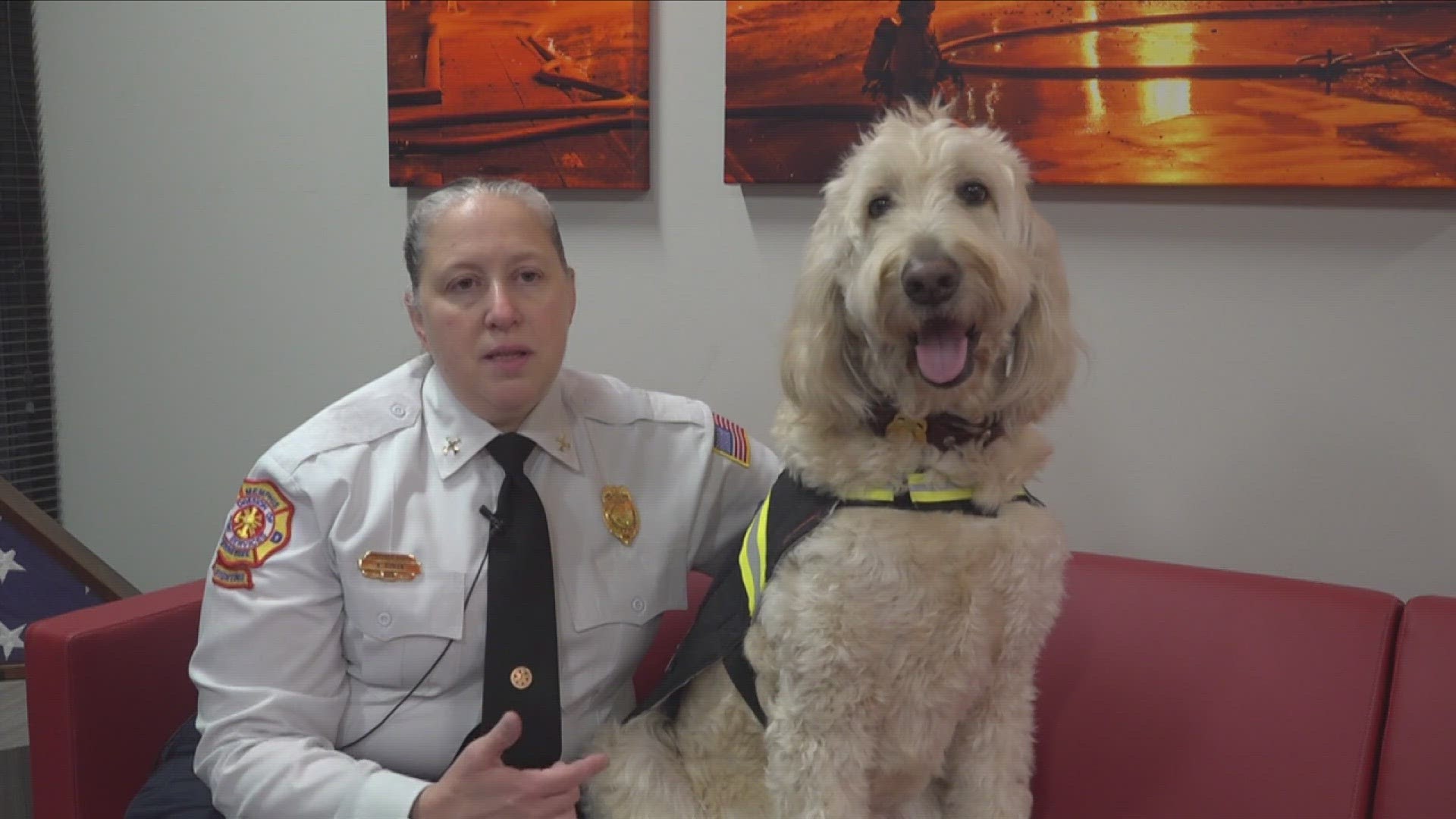MEMPHIS, Tenn. — In a city plagued with crime, responding to traumatic events over and over and over again can take a toll on first responders.
According to the Center for Disease Control, the average person goes through four to six traumatic events in their life, but a police officer experiences 20 each year, or 400 to 600 throughout a career.
Those experiences and stress can lead to a higher risk of suicide, anxiety, and depression. The Community Police Relations Foundation said police are more likely to die from suicide than in the line of duty.
The Substance Abuse and Mental Health Service Administration estimates 30% of first responders develop a behavioral Health Condition like PTSD. Several departments across the country have put in programs to help combat this stress, including bringing in a dog to help first responders, like right here in Memphis.
“He pretty much is my shadow, so he goes with me wherever I go,” said Amanda Bowen, Chief of EMS Training at the Memphis Fire Department.
Wilson the Goldendoodle is one of two dogs in MFD’s Comfort K-9 program. Together with Bowen, Wilson’s job is quite simple - just be himself. Just by entering the room, the Goldendoodle brings a smile and a sense of relief to everyone who meets him.
Wilson was a warm welcome to MFD back in 2019, after the department spent a large part of the year responding to especially traumatic events, according to Bowen.
“Really bad calls, really bad fires involving kids, just a lot of very traumatic things, and we were seeing so many people struggle with that,” said Bowen. “I just knew how my dogs personally affected me, and I was like, man, if we could get something like that… and luckily Chief Sweat was like, yeah go for it.”
From there the rest is history, and it is a decision the MFD EMS Chief said they can see everyday.
“For me as soon as I walk into the building it’s not ‘Hey Chief’ or for those who know me ‘Hey Amanda’ it’s "Where’s Wilson?' I know as soon as I walk in, those words alone tell me this is working,” said Bowen.

